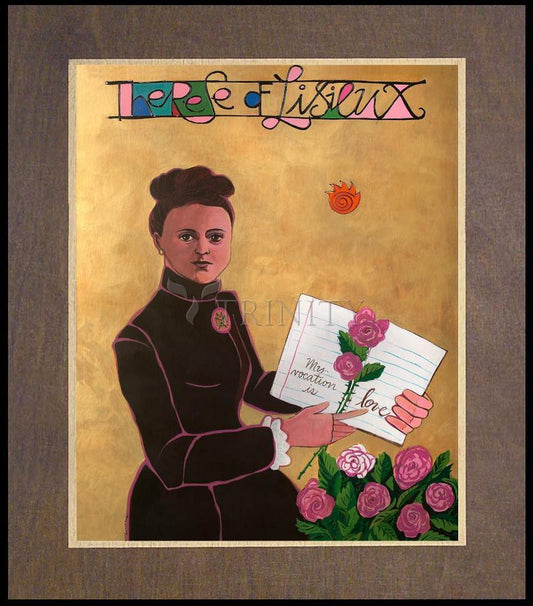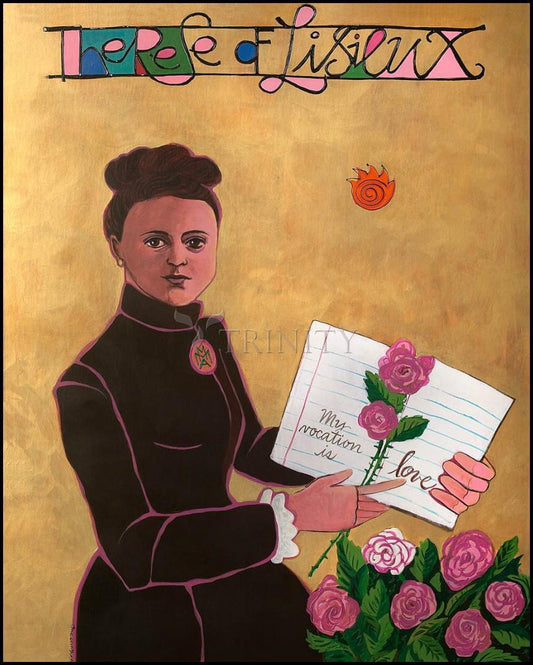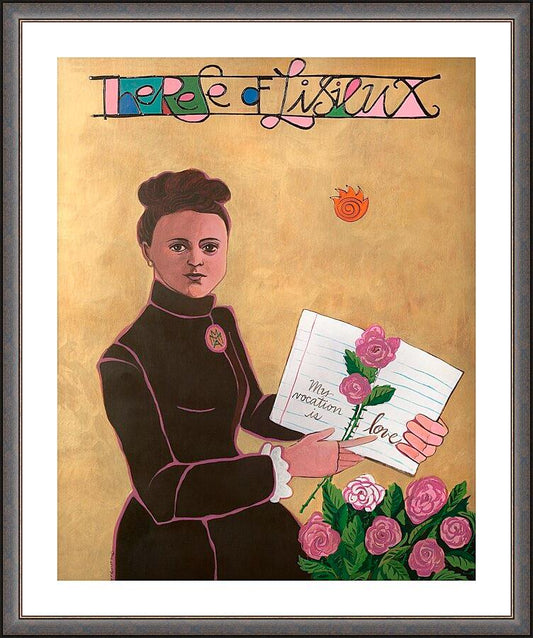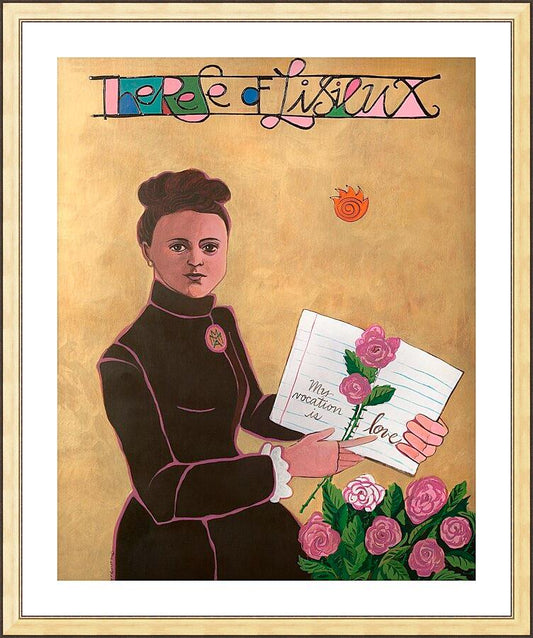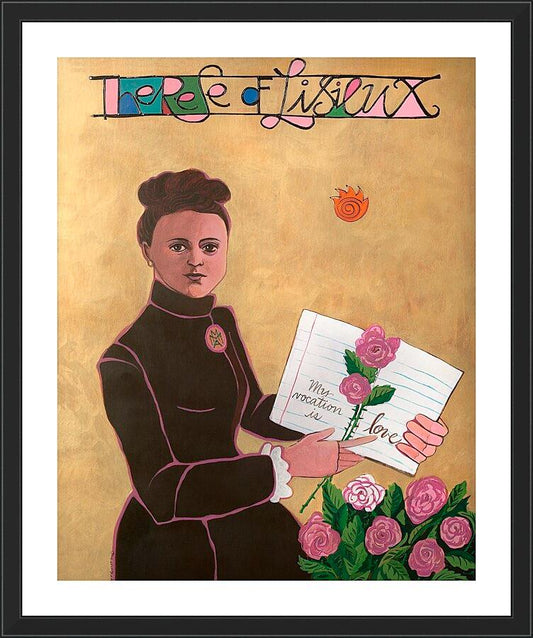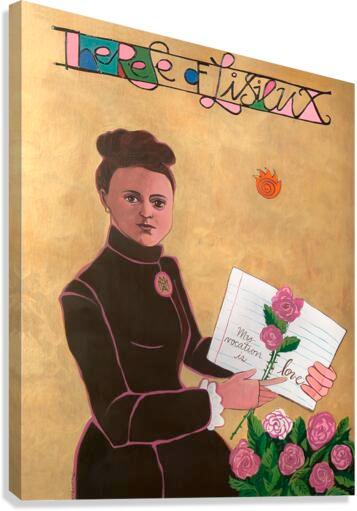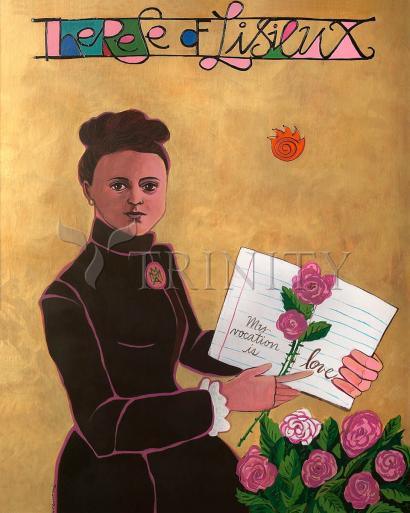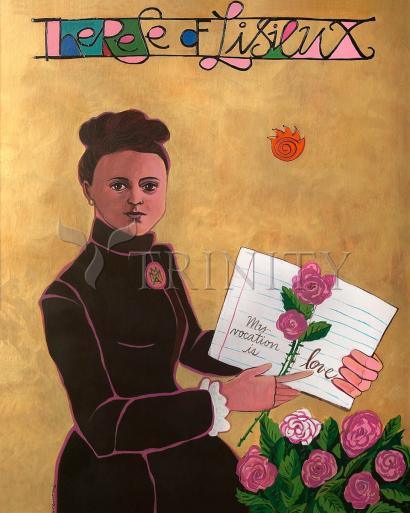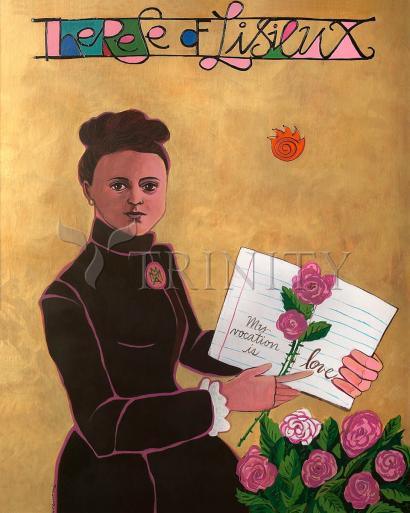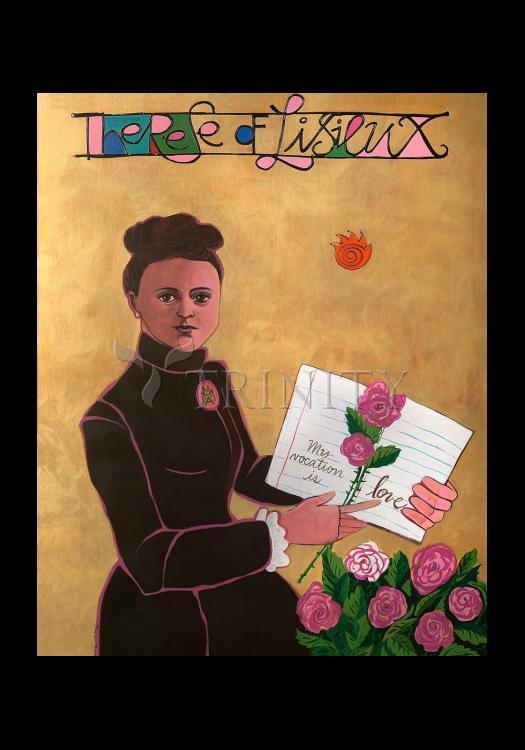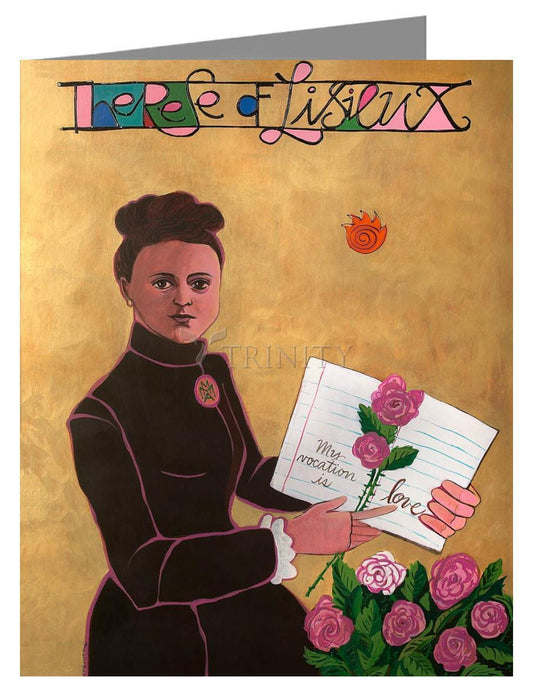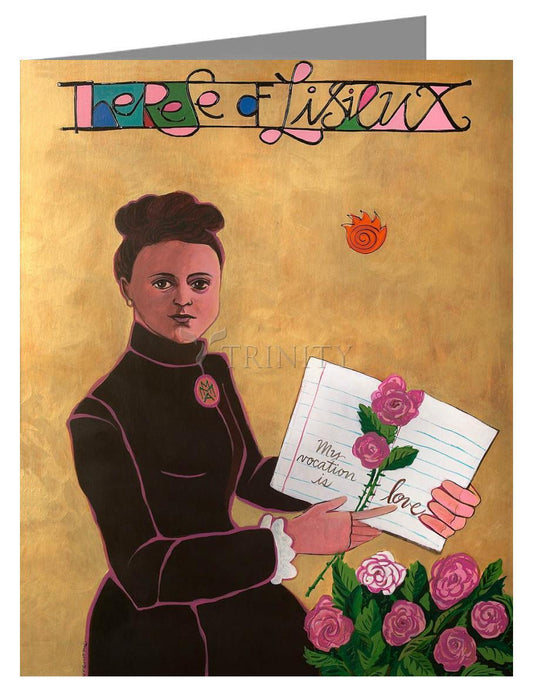In the heart of the Church I will be Love
"At last I have found my vocation. In the heart of the Church, I will be Love!"
Has St. Thérèse simply discovered the common vocation of all of us, or has she found her own particular vocation? Or are both true at the same time? Is it both her special vocation and the universal vocation common to all of us? This essay argues that it is both: the special calling of St. Thérèse consists precisely in her giving herself completely to that which is the fundamental vocation of us all--to live in love. Most of us all not called to live the vocation of love in the same way as she did--as a Carmelite devoted to contemplation and the intense expression of love in little things--but her vocation has something to show every one of us about our own unique vocation.
Her Own Words on The Call to Love
Her desire to live all vocations
To be your Spouse, O Jesus, to be a Carmelite, by my union with you to be the mother of souls, should content me... yet it does not... Without doubt, these three privileges are indeed my vocation: Carmelite, spouse, and mother. And yet I feel in myself other vocations"I feel myself called to be a soldier, priest, apostle, doctor of the church, martyr. Finally, I feel the need, the desire to perform all the most heroic deeds for you, Jesus... I feel in my soul the courage of a crusader, of a soldier for the Church, and I wish to die on the field of battle in defense of the Church...
I feel in me the vocation of a priest! With what love, O Jesus, would I bear you in my hands, when at the sound of my words you came down from heaven! With what love would I give you to souls! But alas, just as much as I desire to be a priest, I admire and envy the humility of St. Francis of Assisi, and feel the call to imitate him in refusing the sublime dignity of the Priesthood.
Dreaming of the tortures in which Christians are to share at the time of the Antichrist, I feel my heart thrill, and I would like these tortures to be kept for me... Jesus, Jesus, if I wanted to write all my desires, I would have to take your Book of Life, where the deeds of your saints are recorded: all these deeds I would like to accomplish for you.
Each person has their own gift
At prayer these desires made me suffer a true martydom. I opened the Epistles of St. Paul to seek some relief. The 12th and 13th chapters of the First Epistle to the Corinthians fell before my eyes. I read, in the first, that not all can be apostles, prophets, and doctors, etc., that the Church is composed of different members, and that the eye cannot also be at the same time the hand.
Therese finds her vocation in charity
The answer was clear, but it did not satisfy my desires, it did not give me peace.... Without being discouraged I continued my reading, and this phrase comforted me: "Earnestly desire the more perfect gifts. And I show you a still more excellent way" (1 Cor 12:31). And the Apostle explains how all gifts, even the most perfect, are nothing without Love... that charity is the excellent way that leads surely to God. At last I had found rest.... Considering the mystical Body of the Church, I had not recognized myself in any of the members described by St. Paul, or rather, I wanted to recognize myself in all... Charity gave me the key to my vocation. I understood that if the Church has a body composed of different members, the noblest and most necessary of all the members would not be lacking to her. I understood that the Church has a heart, and that this heart burns with Love. I understood that Love alone makes its members act, that if this Love were to be extinguished, the Apostles would no longer preach the Gospel, the Martyrs would refuse to shed their blood... I understood that Love embraces all vocations, that Love is all things, that it embraces all times and all places... in a word, that it is eternal!
To be love in the heart of the Church
Then in the excess of my delirious joy, I cried out: "O Jesus, my Love, at last I have found my vocation, my vocation is Love!... Yes, I have found my place in the Church, and it is you, O my God, who have given me this place... in the heart of the Church, my Mother, I will be Love!... Thus, I shall be all things: thus my dream shall be realized!!!"
I am a child... It is not riches or glory (not even the glory of Heaven) that this child asks for... No, she asks for Love. She knows but one desire: to love you, Jesus. Glorious deeds are forbidden her; she cannot preach the Gospel or shed her blood... But what does that matter, her brothers work in her place, and she, a little child, stays close to the throne of the King and Queen, and loves for her brothers who are in the combat... But how shall she show her love, since love proves itself by deeds? Well! the little child will strew flowers, she will embalm the royal throne with their fragrance, she will sing with a silver voice the canticle of Love.
Yes, my Beloved, I wish to spend my life thus... I have no other means of proving my love except by strewing flowers, that is to say, letting no little sacrifice pass, no look, no word--profiting by the littlest actions, and doing them out of love. I wish to suffer out of love and to rejoice out of love; thus I shall strew flowers before your throne. I shall not find one without scattering its petals before you... and in strewing my flowers I will sing (can one weep in doing so joyous an action?) I will sing, even if my roses must be gathered from among thorns; and the longer and sharper the thorns, the sweeter shall be my song.
Excerpts from My Vocation Is Love: Thérèse of Lisieux, by Jean Lafrance



